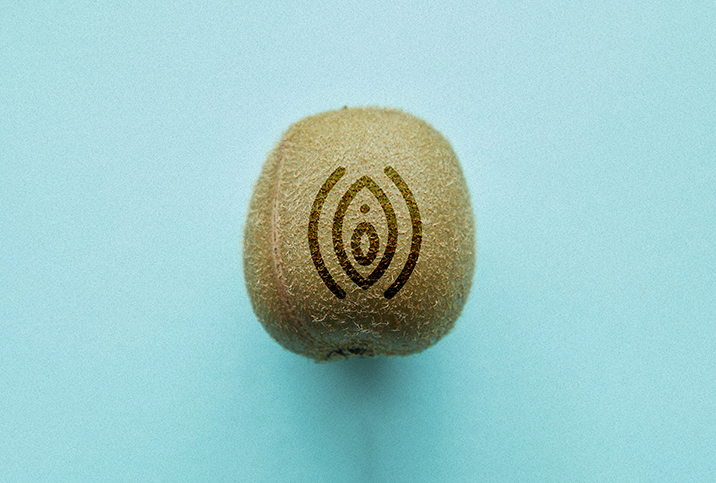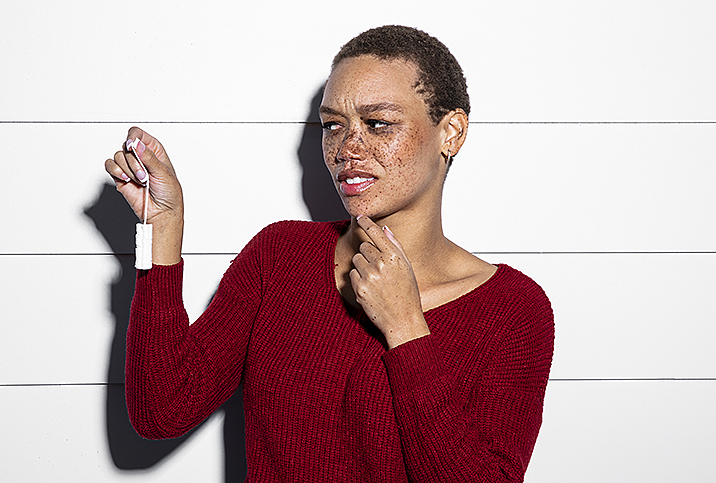Common Culprits of an Itchy Vulva

Feeling kinda itchy down there? Genital itching happens at some point to just about everyone, men included, but potential causes can vary a lot.
Here we'll focus on the most frequent diagnoses and what you can, and should, do about it.
Common causes
Common causes of genital itching in women range from serious (sexually transmitted diseases, or STDs) to generally annoying (bacterial vaginosis and yeast infections) to avoidable (chemical irritants) to unavoidable (menopause).
Frustratingly, itching can also be idiopathic, which means that sometimes there is no known cause at all.
For many women, genital itching is short-lived and resolves spontaneously with no treatment required. At-home remedies include baking soda or apple cider vinegar baths, applying cortisone cream, wearing cotton underwear, and practicing good feminine hygiene. If itching persists, a doctor can screen you for the usual suspects.
Sexually transmitted diseases
Protect yourself by using condoms, get tested regularly and talk to your doctor, and always discuss STD history with your partners, especially if you're breaking in a new one. Also, keep in mind that symptoms for STDs may be different in men than in women, so do some research to know what to look for.
Here are some common sexually transmitted diseases and their symptoms:
-
Chlamydia is a common STD that affects both men and women, and can cause permanent reproductive issues. In addition to itching, you may find vaginal discharge, pain with urination and during sex, and spotting and bleeding. Swift treatment is recommended—usually azithromycin or doxycycline, either of which can be prescribed by your doctor. Symptoms should disappear within two to four weeks.
-
Gonorrhea infects both men and women, and symptoms will usually first be noticed in the urethra, throat or rectum. Symptoms will present as an abnormal vaginal discharge, usually watery green or yellow, as well as burning with urination and possible lower abdominal pain. Although it sounds ironic, having symptoms is a good thing because you can make an appointment with your doctor and begin the healing process; many women have no symptoms and don't know they have gonorrhea or may be passing it on to others. Gonorrhea should be treated with prescribed antibiotics, generally ceftriaxone or azithromycin.
-
Genital herpes affects men and women with symptoms including genital pain, burning, itching and sores. At this time, there is no cure for genital herpes. The virus remains dormant in your body and can cause flare-ups throughout your life. However, treatment with antivirals can minimize recurrence and symptoms.
-
Genital warts are typically caused by strains 6 and 11 of the human papillomavirus (HPV), and they're incredibly common. Itchy warts pop up in the genital area on the vulva, vaginal walls, cervix, anus and anal canal. They can be small and fleshy in appearance or resemble a cauliflower shape. In some cases, the warts are too small to be seen. There's no treatment for the virus, but warts that cause irritation can be treated with the following prescribed drugs: imiquimod, podophyllin, podofilox or trichloroacetic acid.
-
Trichomoniasis, also known as trich, is caused by the protozoan parasite trichomonas vaginalis. Only 30 percent of infected people have symptoms, and women are more likely to be infected than men. Trich can cause genital itching, burning, redness, soreness, pain with urination and an abnormal vaginal discharge, often associated with a fishy odor. Treatment typically includes metronidazole or tinidazole, which your doctor will prescribe for you.
Bacterial vaginosis
Bacterial vaginosis (BV) is the result of an overgrowth of natural vaginal bacteria. Though BV is not an STD, unprotected sex and frequent douching are thought to increase the risk. The symptoms you'll notice first are vaginal burning and itching, accompanied by an abnormal discharge that may be thin and grayish. A key indicator is a strong, foul, fishy vaginal odor.
On the other hand, many women with BV have no symptoms at all.
BV can be treated with prescription drugs: clindamycin, metronidazole or tinidazole.
Yeast infection
A fungal infection associated with extreme itchiness, irritation, redness and a vaginal discharge that looks like cottage cheese, yeast infections—also known as vaginal candidiasis—afflict 75 percent of women at some point in their lives. Yeast infections come about due to an imbalance of vaginal bacteria and yeast, often due to antibiotic use, pregnancy, uncontrolled diabetes, oral contraceptives or an impaired immune system.
Receiving oral sex increases the risk of spreading this infection. Treatment often entails antifungals such as miconazole or fluconazole, both of which require a doctor's prescription.
Menopause
Menopause is accompanied by all kinds of challenging symptoms, including vaginal dryness due to decreasing estrogen levels. The result can be extreme irritation and itchiness.
Treatments such as hormone therapies and vaginal estrogen applied topically as a cream can bring relief.
Irritants
Sometimes mild vaginal itching is due to something simple and unexpected: a new soap, body wash, lubricant, latex condom, scented tampon, toilet paper, laundry detergent or fabric softener. If you suspect one of these new factors in your life may be the culprit, eliminate them one by one and see if you feel better.
If you're having genital itching that doesn't resolve on its own after a few days, see a doctor, who can rule out anything serious and address the underlying cause.

















